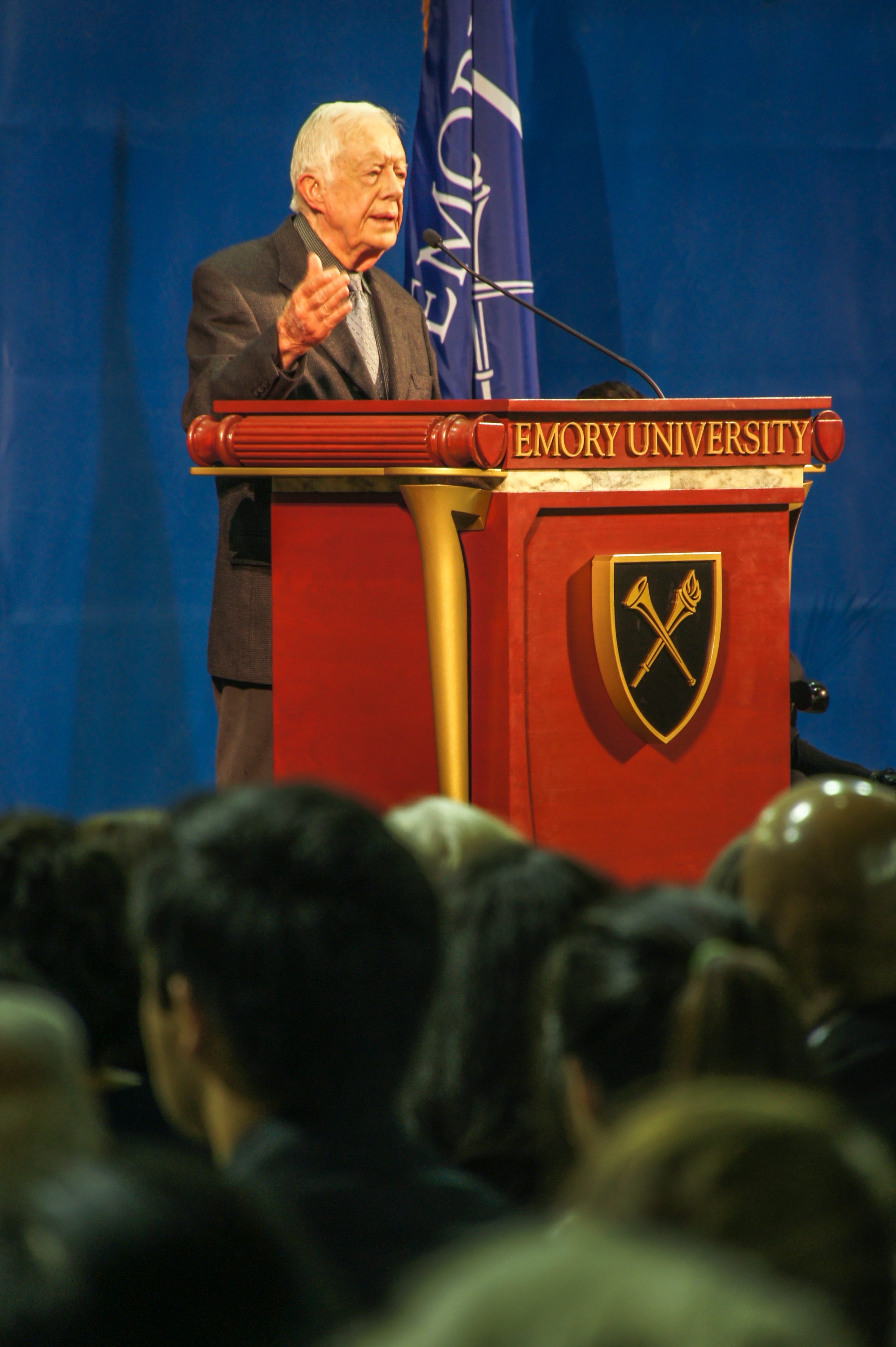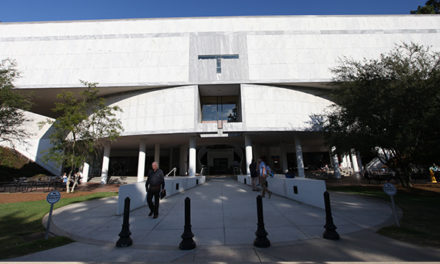
Photo courtesy of Alistair on Flickr
In June, College sophomore Michelle Heker was packing her suitcase to return home from her extended Birthright trip to Israel when she was informed of news she never thought she would hear – Eyal Yifrach, Gilad Shaer and Naftali Fraenkel, the three Israeli teens who had been kidnapped and were missing for weeks, were found dead.
“The whole Birthright trip, [the subject of the missing teens] was coming up over and over again,” Heker said. “Everyone had hope. In Israel, everyone is family, and if your son is taken, you will do anything to get them back.”
Heker said that while this was a traumatic and emotional experience, it allowed her to see the hope and unity that exists among Israelis. It has even motivated Heker to return to Israel and she plans to study abroad at the Hebrew University of Jerusalem through Emory during the spring semester of 2015.
Heker is planning on participating in a program at Hebrew University called “Thrive,” which was set up to help students immerse themselves in the Israeli culture and learn about Judaism. One weekend of this program is dedicated to the Israeli Defense Forces (IDF), where students will spend time with soldiers.
“There are 24 hours straight that you do everything that an Israeli soldier would do for basic training,” Heker said. “I’m really excited to spend a weekend with so many different types of IDF solders to get a broad understanding of what it is like. I want to experience the type of training that every soldier has to go through.”
Heker said that the people she met during her last trip to Israel have motivated her to return.
“I felt connected to Israel not just because of Judaism, but because of the people that I met, how welcoming everyone was and how the community is there,” Heker said. “The day the three soldiers were kidnapped, people all over Israel went to memorials singing and crying together.”
The kidnapping and murder of the three Israeli teens added to a complex conflict escalation between Israel and the Palestinian group Hamas. Israel, believing that Hamas was behind the kidnapping, subsequently began an explosives bombardment campaign in the Hamas-controlled Gaza Strip in July, which has resulted in the deaths of more than 2,000 people, most of whom were located in Gaza. Israel further launched a mission to stop Hamas’ rocket attacks against Israeli civilians. Since the start of the operatio, more than 1,000 rockets have been launched at Israel.
This recent conflict has had far-reaching global implications. At Emory, the conflict has affected many students’ study abroad plans and experiences. Emory’s Center for International Programs Abroad (CIPA) cancelled the pre-term Ulpan session in Tel Aviv, Israel, in which students study intensive Hebrew for seven weeks during July and August. After completing the Ulpan program, students begin the regular academic term at Tel Aviv University where they enroll in one Hebrew language course and four elective courses of their choice. Students are also automatically enrolled in “History and Memory in the Holy Land,” a one-credit hour course involving lectures, site visits and dinners.
“This part of the program [Ulpan] was cancelled due to the situation on the ground in Israel at the time,” CIPA Director Kristi Hubbard wrote in an email to the Wheel. “This decision was made by the Provost’s office after careful consideration.”
The students who planned on enrolling in the Ulpan session prior to their fall semester were offered alternate options, such as returning to Emory, participating in another study abroad program or waiting to see if the fall program would continue to be offered.
College junior Sarah Zisser is one of three students who elected to stay in Israel and enroll in the Ulpan course even though she would not be receiving credit.
“I actually arrived in Israel the first week of June, which is right before any escalation had begun,” Zisser said. “I had already been here for two weeks when the three Israeli teenagers were kidnapped, and things basically took off from there. At no point did I consider leaving Israel.”
Zisser finished the seven week Ulpan pre-term in mid-September and will begin her semester at Tel Aviv University in October. She said that being in Israel during the conflict has not negatively impacted her experience, but actually enhanced it.
“I strongly feel that there is no more of an inspiring and educational time to be in a country like this than the present,” Zisser said. “When a lone soldier, someone from abroad who volunteers to serve in the Israeli army, from Los Angeles was killed in Gaza in the first week of the ground operation, 30,000 people went to his funeral.”
Zisser was told that there was no guarantee that the semester portion of the program, beginning in October, would continue. She has still not received confirmation that she will receive any academic credit for her study abroad experience.
As of now, the fall program in Israel is scheduled to run while CIPA will work to ensure the safety of Emory students studying abroad.
“CIPA takes the safety of our students abroad seriously,” CIPA Study Abroad Advisor Tye Tavaras said. “We consistently monitor situations both in consultation with relevant offices here at Emory as well as with our local partners in other countries.”
CIPA monitors information from the U.S. State Department, International SOS (a medical and travel security services company), on-site contacts and colleagues in the field of international education.
CIPA also consults with Dean of Emory College Robin Forman, Vice Provost for International Affairs Philip Wainwright, Provost of Academic Affairs Claire E. Sterk and the Emory General Counsel when deciding whether to alter or cancel any part of a study abroad program.
“The health and safety of our students is our top priority,” said Hubbard.
Before the start of her semester at Tel Aviv University, Zisser is embarking on a one-month vacation for the Jewish holidays where she will be traveling around Europe.
“I’ve been here for just over three months, and I have just over three months to go. I have had a truly amazing experience so far,” she said.
–By Lindsey Sheppard, Contributing Writer
The Emory Wheel was founded in 1919 and is currently the only independent, student-run newspaper of Emory University. The Wheel publishes weekly on Wednesdays during the academic year, except during University holidays and scheduled publication intermissions.
The Wheel is financially and editorially independent from the University. All of its content is generated by the Wheel’s more than 100 student staff members and contributing writers, and its printing costs are covered by profits from self-generated advertising sales.






